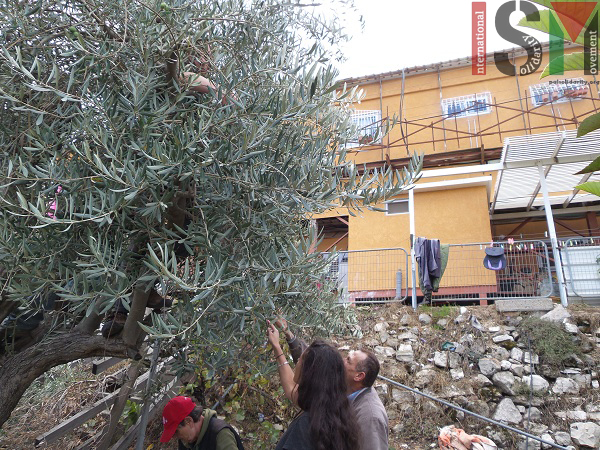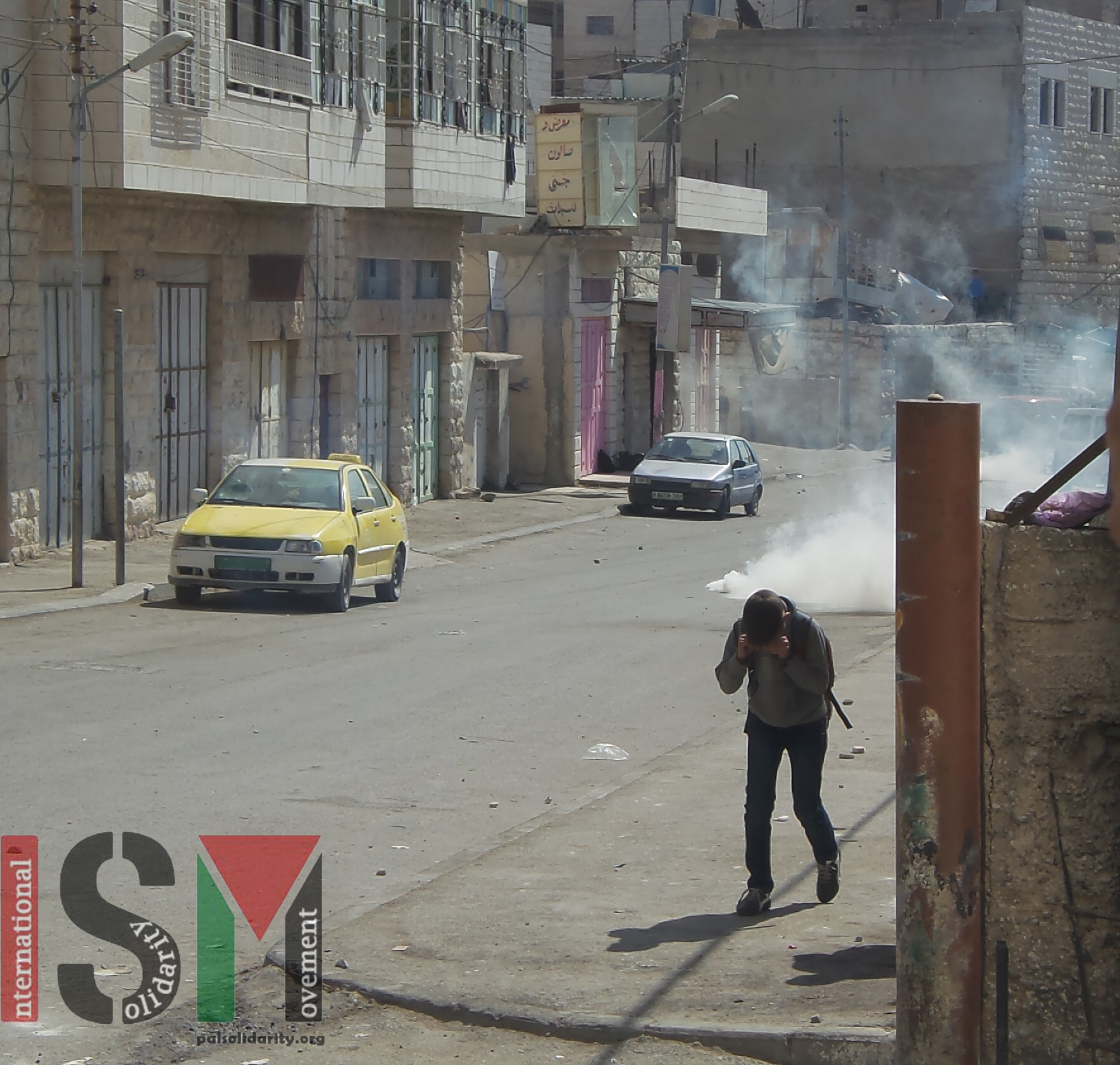Tag: Hebron
-
Settlers destroy Palestinian property under the protection of Israeli soldiers
28th October 2014 | International Solidarity Movement, Khalil team | Tel Rumeida, Occupied Palestine Today at approximately 1:30 PM in the Tel Rumeida neighborhood of occupied al-Khalil (Hebron), the head of security for the illegal settlements in the area attempted to destroy the property of a Palestinian man named Muhammad Knebi. Settlers have been destroying the newly built…
-
Palestinian man successfully harvests olives for the first time in 14 years
20th October 2014 | International Solidarity Movement, Khalil team | Tel Rumeida, Occupied Palestine Today in al-Khalil (Hebron) Hashem Azzeh, a Palestinian man living in the Tel Rumeida neighborhood was able to successfully harvest his olives, on a certain part of his land, for the first time in 14 years. Hashem and his family live in…
-
Tear gas and stun grenades used against schoolchildren
13th October 2014 | International Solidarity Movement, Khalil team | Hebron, Occupied Palestine Today at the Salaymeh checkpoint in al-Khalil (Hebron), Israeli soldiers fired four long-range tear gas canisters, and threw three stun grenades, all towards children leaving school to walk home. One tear gas grenade was also thrown directly at ISM activists documenting the military violence.…



